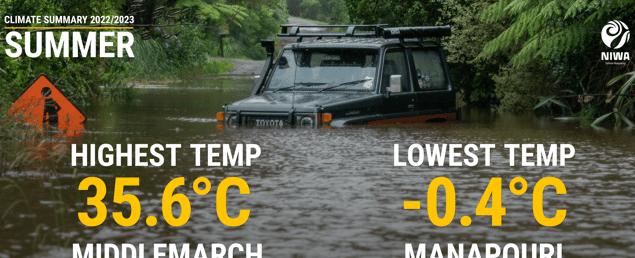Niwa releases its record-breaking stats for a summer of extreme weather

Niwa, the National Institute of Water and Atmospheric Research in New Zealand, has released its report detailing the statistics of an unprecedented period of extreme weather in the country. The extensive report contains alarming data regarding the duration, intensity, and frequency of weather events that plagued the nation’s summer.
What caught my attention in the article was the sheer scale of the data Niwa has collected. Researchers observed that the harsh summer was not limited to any one region but had affected the entire country. Moreover, the frequency and intensity of the weather events exceeded what was recorded previously, ranging from mountain wildfires to floods and heatwaves.
The report shows that during a three-month period, New Zealand experienced the warmest summer, warmest mean temperatures, the driest January, and the wettest February in more than four decades. Furthermore, multiple heatwaves swept across the country, and some regions reached temperatures of up to 38 degrees Celsius.
Niwa’s report is an essential reminder of the impacts of climate change and the need for immediate and active efforts to combat it. As we continue to experience more extreme weather patterns worldwide, it is crucial to take responsibility and find solutions to mitigate the effects of climate change on our planet.
In conclusion, Niwa’s report highlights the severity of the recent extreme weather in New Zealand and raises the alarm about the imminent threat of climate change. It provides a robust wake-up call for individuals and governments worldwide to act responsibly and urgently towards combating climate change.
Quick Links

